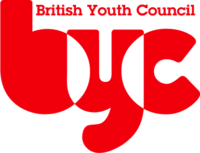Scottish trans people deserve better
The British Youth Council has expressed deep concern at the government’s unprecedented decision to intervene in new legislation which was due to simplify the process for legal recognition of trans people’s gender in Scotland. The government has announced it will use Section 35 of the Scotland Act to block the Scottish Government’s attempts to bring
Building a more inclusive Europe
It is difficult to understate how much the world has changed over the past six months. Millions have lost loved ones; millions have been locked in their homes; those on the frontline have continued working in immensely challenging circumstances; greenhouse gas emissions have plummeted; in the UK 20 years of growth has disappeared in six
- Published in Blogs
Young and Trans – We Are Here For You
As a non-binary person, and as a trustee of the British Youth Council, I welcome the support and safety that our organisation gives to young, trans people like me. As trustees, part of our responsibility to our charity is the commitment to defend our aims and interests, with a strong part of that being ensuring
- Published in Blogs




